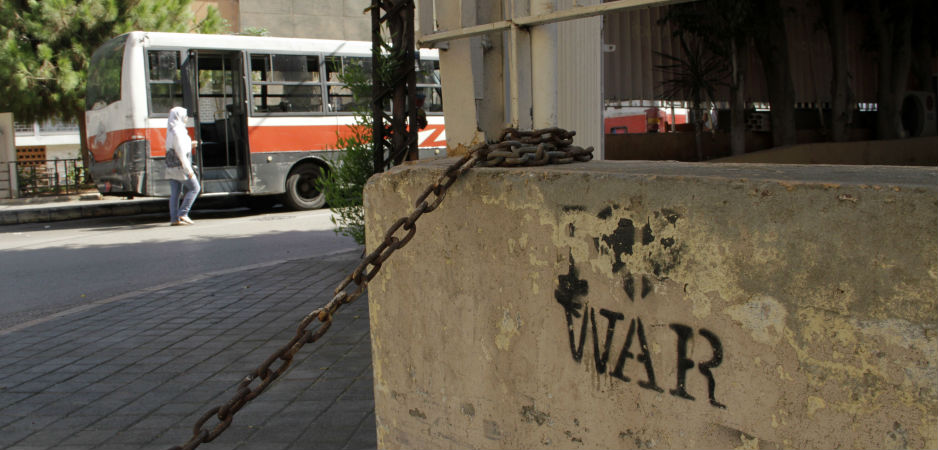Graffiti artists in Beirut use the city’s walls to highlight Lebanon’s social and political issues. [Click on the gallery on the right to view the photo feature.]
Lebanon has undergone drastic changes in the last decades, including a bloody 15-year-long civil war and massive reconstruction efforts in its aftermath. The civil war has been the topic of many art works in various forms, including graffiti. During the war, militias used a primitive form of graffiti to promote their ideologies and political views. During that time, graffiti in Lebanon was as simple as writing slogans on city walls. Nowadays, everything has changed in this country: the life style, the governing system, the political rivalries and the art.
In the mid-1990s, Western-style graffiti started to appear on Beirut’s walls. But it was one decade later that a new graffiti style emerged that is has become known as the Lebanese style. Lebanese graffiti artists are combining stencils, Western influences, Arabic typography and New York-style throw-up graffiti.
Lebanon’s street art scene in form and content has close connections to countries such as Egypt and Tunisia. Graffiti artists in Beirut mostly focus on political and social dilemmas of their own country and the region. Uprisings in Arab countries, war, ethnic conflicts, religious clashes and sexual freedom are shaping the main themes of Beirut’s graffiti scene.
Lebanese graffiti artists can freely spray Beirut’s public and private spaces. This is because Lebanese authorities have not labeled graffiti as vandalism or criminal damage to public and private property. Certain restrictions do apply: Graffiti cannot be sectarian, target a specific political leader or be drawn in a restricted area. Despite this freedom, in one recent case, the Lebanese judiciary system summoned a graffiti artist to court and another artist’s work was quickly covered by paint. In both cases, their work had highly sensitive political connotations. One of them showed a Lebanese army soldier with the sentence “I love corruption” on his T-shirt. The other one pictured army soldiers as machine guns.
Click on the gallery on the right to view the photo feature.
The views expressed in this article are the author’s own and do not necessarily reflect Fair Observer’s editorial policy.
© Changiz M. Varzi
Support Fair Observer
We rely on your support for our independence, diversity and quality.
For more than 10 years, Fair Observer has been free, fair and independent. No billionaire owns us, no advertisers control us. We are a reader-supported nonprofit. Unlike many other publications, we keep our content free for readers regardless of where they live or whether they can afford to pay. We have no paywalls and no ads.
In the post-truth era of fake news, echo chambers and filter bubbles, we publish a plurality of perspectives from around the world. Anyone can publish with us, but everyone goes through a rigorous editorial process. So, you get fact-checked, well-reasoned content instead of noise.
We publish 2,500+ voices from 90+ countries. We also conduct education and training programs
on subjects ranging from digital media and journalism to writing and critical thinking. This
doesn’t come cheap. Servers, editors, trainers and web developers cost
money.
Please consider supporting us on a regular basis as a recurring donor or a
sustaining member.
Will you support FO’s journalism?
We rely on your support for our independence, diversity and quality.







Comment